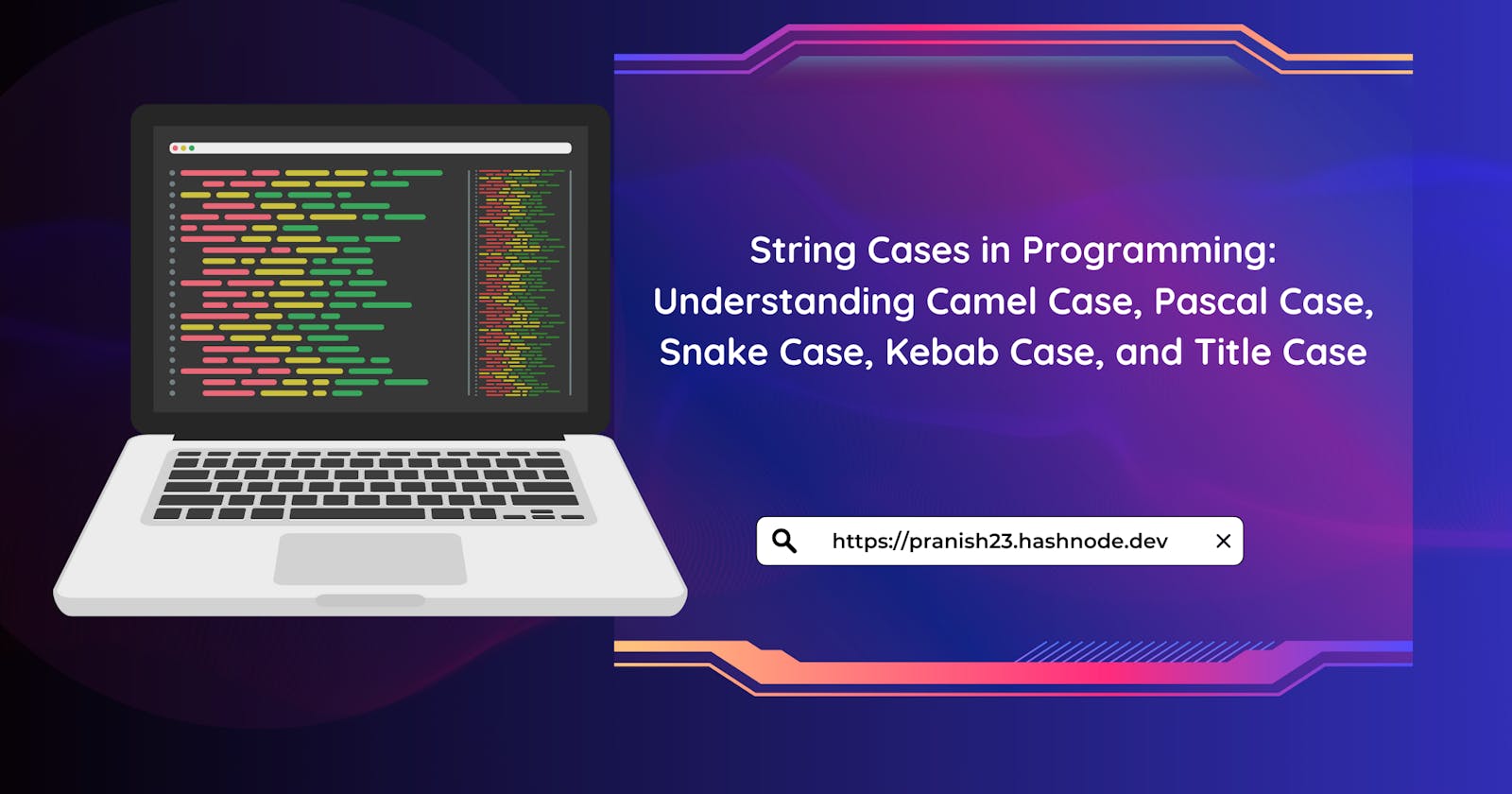String Cases in Programming: Understanding Camel Case, Pascal Case, Snake Case, Kebab Case, and Title Case
In computer programming, several types of cases can be used to format strings. These include:
Camel Case: This is a naming convention where the first word is in lowercase and the first letter of each subsequent word is capitalized. For example,
myVariableName.Pascal Case: This is a naming convention where the first letter of each word is capitalized, and there are no spaces between words. For example,
MyVariableName.Snake Case: This is a naming convention where words are separated by underscores and all letters are lowercase. For example,
my_variable_name.Kebab Case: This is a naming convention where words are separated by hyphens and all letters are lowercase. For example,
my-variable-name.Title Case: This is a formatting convention where the first letter of each word is capitalized, and the remaining letters are in lowercase. For example,
My Variable Name.
These cases are commonly used in programming languages to make variables, functions, and other identifiers more readable and understandable.

